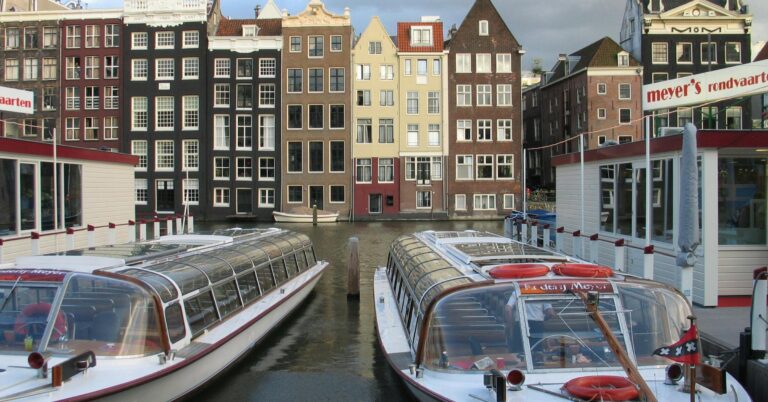No matter how well I spoke Dutch or integrated into society, I would always be “the American” — the reluctant spokesperson for everything the U.S. administration was doing at the time. In the early years, it was WMDs and Guantanamo. Now it’s mass shootings, health care and “How could you elect a felon?”
Before moving, I’d begun my own political transformation. I longed to understand the world beyond how I was raised. Instead of enlightenment, I was confronted by international perceptions of me. People scrutinized my accent, my Levi’s jeans, my longing for air conditioning and the possibility that I voted for the man then starting a war in Afghanistan. I found myself constantly defensive, trying to be the most anti-American member of the group before anyone could accuse me of supporting President George W. Bush’s warmongering. This self-flagellation worked, but left me feeling lonely.
That strong identity fueling your move — what happens to it once you relocate? I have felt deep longing watching Americans unite for Black Lives Matter or No Kings protests. I can march here, but my domestic policy outrage isn’t satiated in the same way.
What if you see similar issues in your adopted country? Will you speak out, like I did about the Netherlands’ racist Zwarte Piet tradition (blackface characters who long accompanied Sinterklaas)? Several times angry Dutch people questioned my motives: “Don’t you have enough problems in America? Stay out of our business!” Will you try to stay silent to avoid conflict? How will that feel?
Conversely, you could try to stay out of politics, but they will be hard to escape. You might become the target of resentment about American foreign-policy decisions you had no part in making. Just opening your mouth invites comment: “Are you American? So … what do you think about Trump?” Are you prepared to become the face of the current administration at dinner parties for the next decade?

